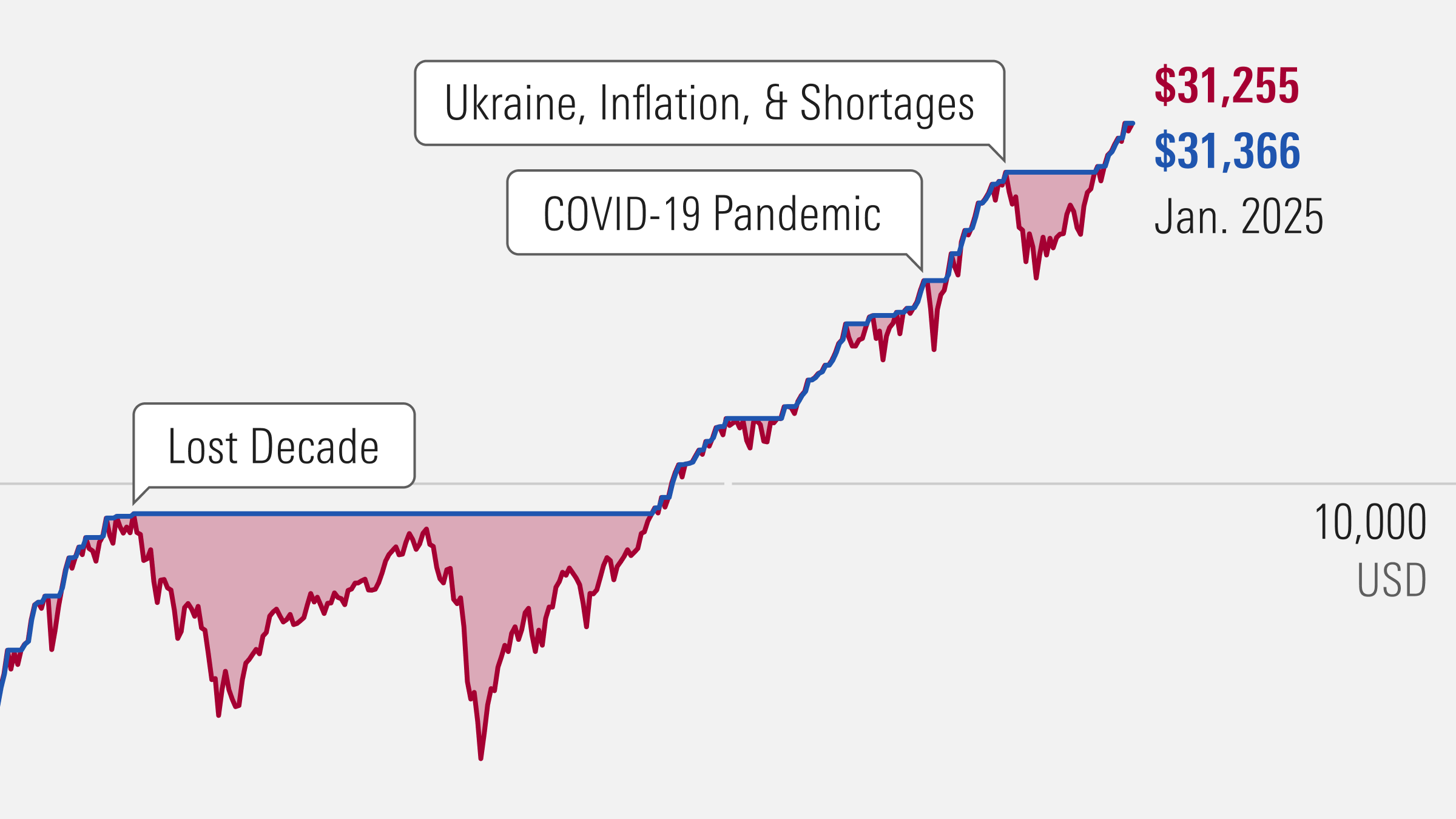Jeremy Glaser: For Morningstar, I'm Jeremy Glaser. I'm here with Gregg Warren. He is our Berkshire analyst and just finished asking questions of Warren Buffett and Charlie Munger at the annual meeting.
Gregg, thanks for joining me.
Gregg Warren: Thanks for having me.
Glaser: So, let's talk a little bit about just kind of the tenor of the meeting. It seems a little bit more substantive this year than it has been in the past.
Warren: Yeah, it was pretty good from that perspective. I think the fact that Warren brought in the three journalists and the three analysts a few years ago, the whole intent was to try and get some more substance into the meetings, opportunity for them to talk a lot more about the businesses. Surprisingly, I'd say across the breadth of questions, it was pretty good, pretty well-focused, not a whole lot of sort of focus on hot-topic issues right now, like the political environment or anything else like that. So, I think from that perspective, there is a lot to walk away with.
Glaser: So, let's look at what we learned. Let's start with railroads. BNSF and other railroads have been under pressure. What kind of insight did you get on that business?
Warren: Well, on the railroad business, we actually asked one question that was related more to consolidation. Canadian Pacific took a swing at Norfolk Southern late last year, created a lot of consternation within the industry, within--from lawmakers and whatnot. And basically, they had to walk away from the deal, and my question was, what's it going to take for consolidation to take place? Warren deferred to Matt Rose on that one, and he sort of let us know what they are looking for as far as environments and conditions for consolidation to take place. And in their view it's going to take a much greater increase in the population level in the United States for the regulators to potentially OK any sort of deal and they will definitely be first in mind when he looks to sort of do a combination with another railroad.
The other thing that came up was just the idea of capital spending and sort of revenue growth and profitability given what's been taking place in the commodity markets. Crude oil shipments are down significantly. Coal shipments are down drastically over the last year and how the industry is sort of dealing with that. I mean, BNSF is not alone because everybody else is feeling the same pain. But when they look at sort of where capex is going to be spent going forward, it's likely not going to be on those areas. They have already spent significantly on crude. Coal really doesn't need a whole lot of incremental investment. So, you'll look to more intermodal sort of projects, anything else that can sort of enhance the service capabilities, the networking abilities. And Buffett did make a huge point there that capex spending is going to have to be meaningfully above depreciation on a go-forward basis because they can't just maintain the rails and hold serve. They are going to have to actually spend more in order to sort of develop opportunities to offset some of what they will be losing over the long run.
Glaser: Speaking of another area where they will be investing heavily Berkshire Hathaway Energy. What did we learn about that business, particularly on the renewables side?
Warren: Well, we knew coming in that they had invested another $3.6 billion in another wind farm in Iowa. This is going to take their capacity generation in that market up to 85% from renewables or from wind power exclusively. That's phenomenal. You just don't see that anywhere else in the market. And Iowa so far has been very, very conducive to them doing this. The lawmakers have been working with them. It's good for the consumers. The cost of electricity is actually cheaper in Council Bluffs on the other side of the river here than it is in Omaha.
And the one thing that Warren did bring up during the course of the meeting was the fact that you've had a lot of data farms cropping up in Iowa, like Google has a big farm out there and a lot of the other firms are starting to set up big data centers because it's much cheaper for them to operate, and it creates jobs for those local environments. So, from that perspective, MidAmerican, which is a subsidiary of Berkshire Energy that's there, is definitely doing the right thing for not just society there but also for their longer-term cost perspective.
Glaser: Switching gears a little bit, talking about share buybacks. You asked Warren a question about when they would buy back shares. Did you learn about when they are going to actually go in there and purchase them?
Warren: Yeah. When we look at share buybacks, I mean, they've had a threshold out there for a while at 1.2 times book value and we've not really seen a meaningful amount of share buybacks over the last 4.5 years. Part of that's because the stock has just not gotten there. I erred a little bit in my calculation on where book value per share, where the threshold was in the first quarter this year. There were a couple of days in January/February where the stock actually got very, very close to tripping that threshold. But I ended up getting sort of the right answer out of the question which was, is he willing to step out there and buy back stock during the quarter, even though he may not have released what the end of quarter book value per share is and he basically affirmed my sort of belief that he would do that.
Glaser: Any other big takeaways from the meeting?
Warren: Overall, I guess, there were a lot of good, different things that came through in different ways. I'm going to have to dig through and sort of rework through my notes and information and come to some different conclusions. But again, as we started out with the conversation here, I felt this meeting was a lot more fruitful than we've seen in a while.
Glaser: Gregg, thank you. I know it's been a long day. So, thanks for joining me.
Warren: Thank you.
Glaser: For Morningstar, I'm Jeremy Glaser. Thanks for watching.


















